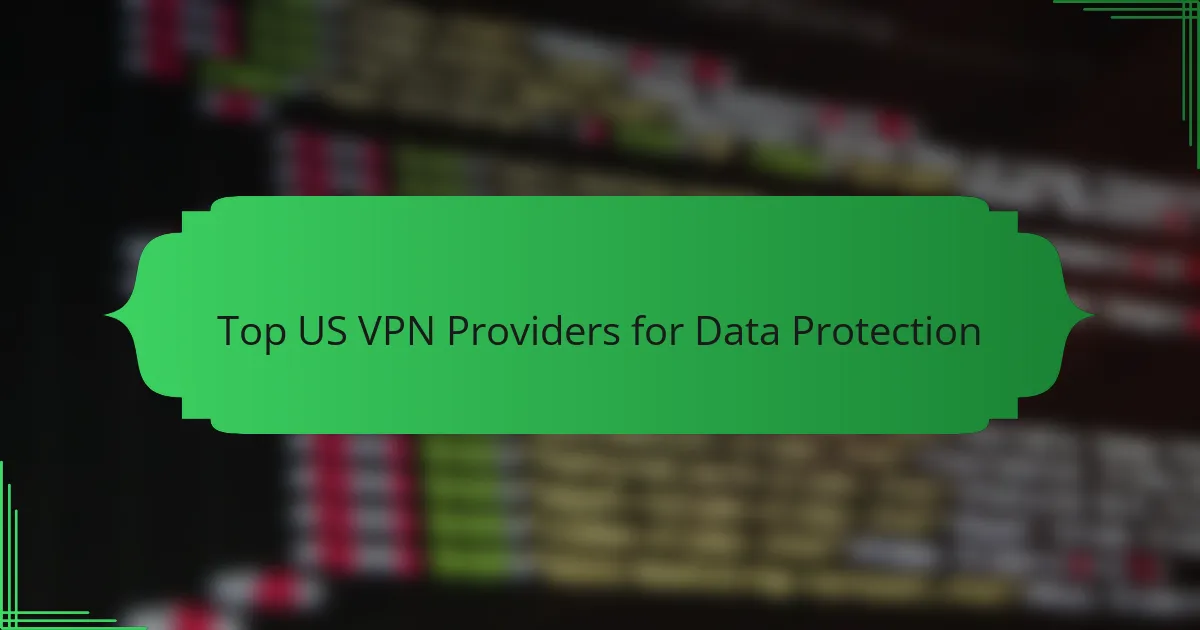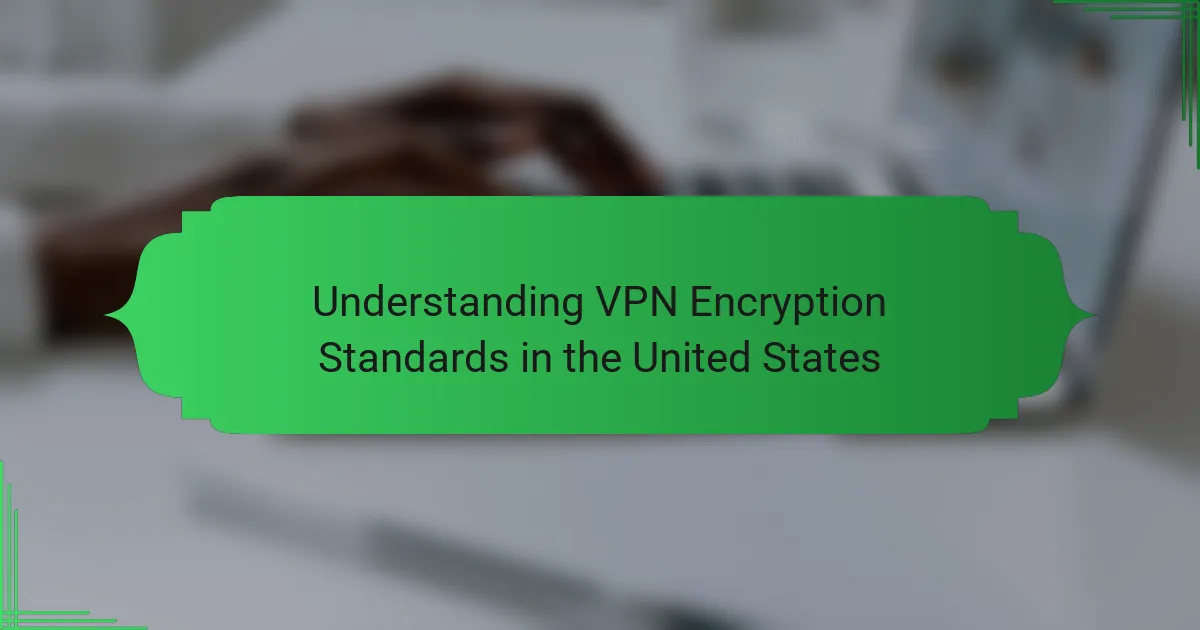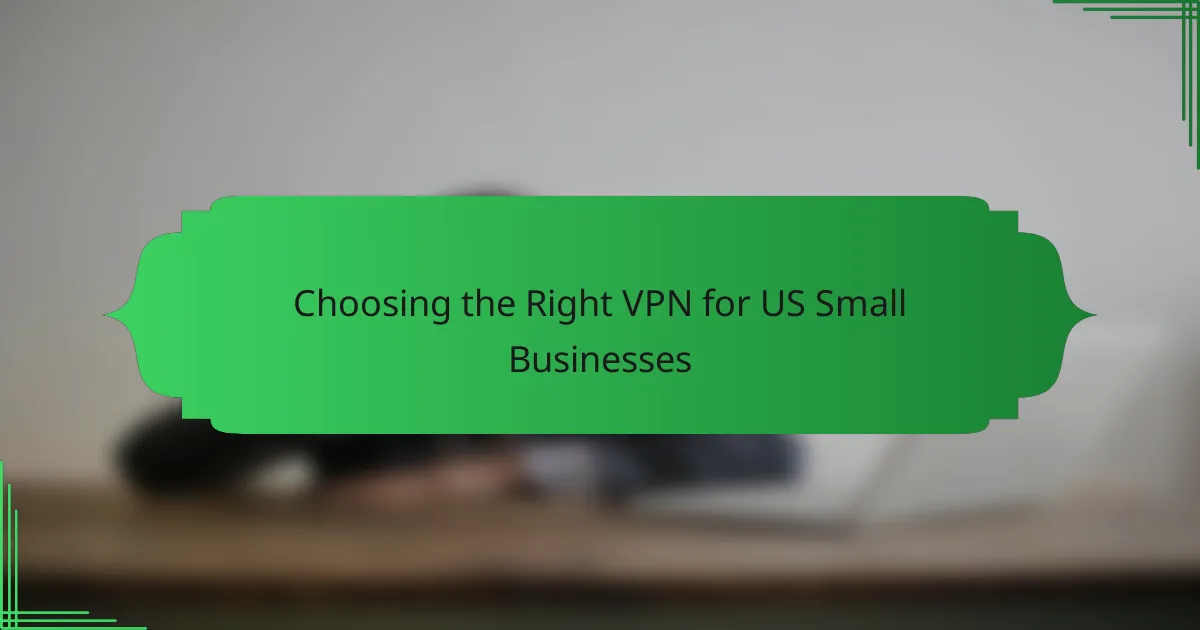When it comes to safeguarding your online privacy, selecting a top VPN provider in the US is crucial. These providers focus on robust encryption, strict no-logs policies, and advanced security features to ensure your data remains protected from prying eyes. With various pricing options available, users can find a plan that suits their needs while enjoying enhanced data security.
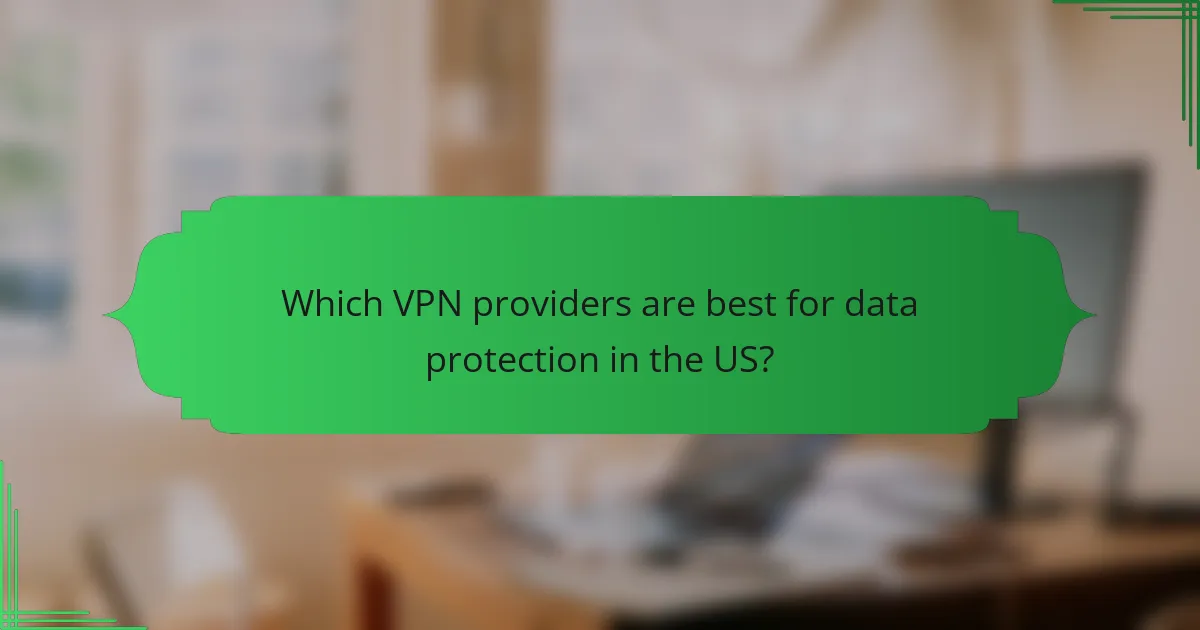
Which VPN providers are best for data protection in the US?
The best VPN providers for data protection in the US prioritize user privacy, employ strong encryption, and have a clear no-logs policy. These features ensure that your online activities remain secure and confidential, making them essential for anyone concerned about data protection.
ExpressVPN
ExpressVPN is renowned for its robust security features, including AES-256 encryption and a strict no-logs policy. It operates servers in numerous countries, allowing users to bypass geo-restrictions while maintaining high-speed connections.
For data protection, ExpressVPN offers a kill switch that disconnects your internet if the VPN connection drops, preventing any data leaks. Its user-friendly interface makes it suitable for both beginners and advanced users.
NordVPN
NordVPN is a strong contender for data protection, featuring double VPN technology that routes your traffic through two servers for added security. It also employs AES-256 encryption and has a no-logs policy, ensuring your data remains private.
Additionally, NordVPN includes CyberSec, a feature that blocks ads and malicious websites, enhancing your online safety. With thousands of servers worldwide, it provides excellent performance and reliability.
Surfshark
Surfshark stands out with its unlimited device policy, allowing users to connect as many devices as they want under one account. It uses AES-256 encryption and has a strict no-logs policy, making it a solid choice for data protection.
Surfshark also offers features like CleanWeb, which blocks ads and trackers, and a kill switch to prevent data leaks. Its competitive pricing and strong security measures make it an appealing option for budget-conscious users.
CyberGhost
CyberGhost is designed with user privacy in mind, offering a no-logs policy and strong encryption standards. It features dedicated servers optimized for streaming and torrenting, ensuring a fast and secure experience.
With its user-friendly interface, CyberGhost makes it easy to connect to the best server for your needs. The built-in kill switch and ad-blocking features further enhance its data protection capabilities.
Private Internet Access
Private Internet Access (PIA) is known for its strong commitment to privacy, featuring a no-logs policy and customizable encryption settings. It offers a large network of servers, providing users with flexibility and speed.
PIA includes a kill switch and DNS leak protection, ensuring that your data remains secure even if the VPN connection fails. Its affordability and robust features make it a popular choice for those prioritizing data protection.
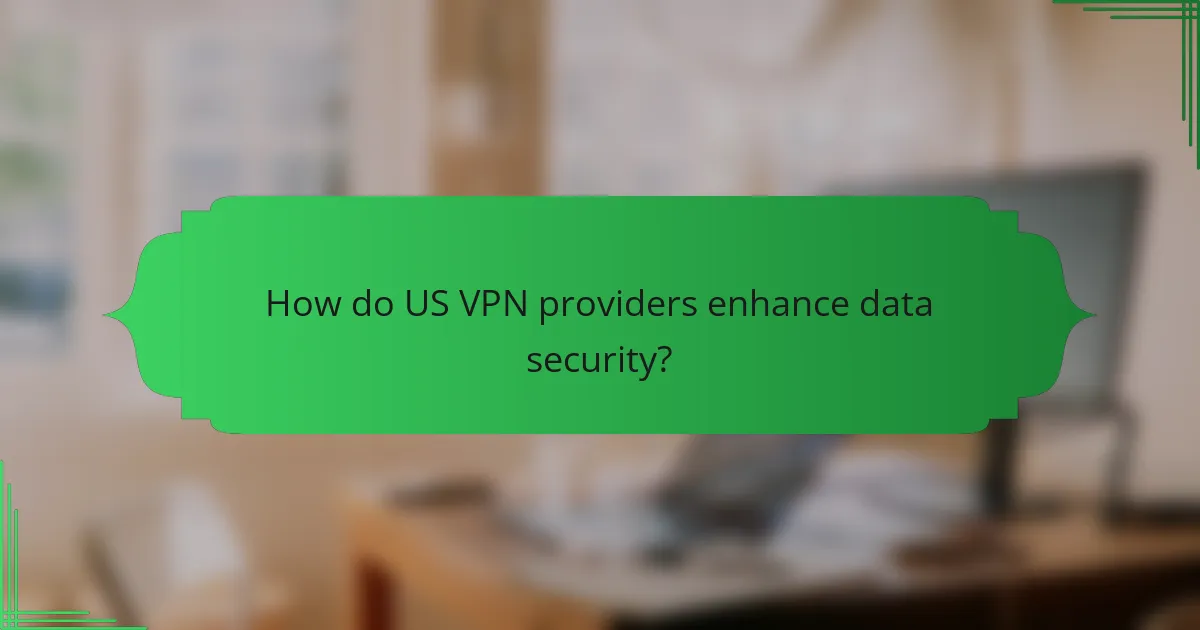
How do US VPN providers enhance data security?
US VPN providers enhance data security through various technologies and policies designed to protect user data from unauthorized access. Key features such as encryption, no-logs policies, and kill switch mechanisms play critical roles in safeguarding online privacy.
Encryption standards
Encryption standards are essential for ensuring that data transmitted over the internet remains confidential. Most US VPN providers utilize strong encryption protocols like AES-256, which is widely regarded as secure and is used by governments and security experts globally.
When selecting a VPN, look for those that offer multiple encryption options and allow you to choose the level of security that fits your needs. Higher encryption levels may slow down your connection, so consider a balance between speed and security based on your usage.
No-logs policy
A no-logs policy means that a VPN provider does not store any data about your online activities. This is crucial for privacy, as it ensures that even if a third party requests data, there is nothing to provide.
When evaluating VPNs, check for independent audits or transparency reports that verify their no-logs claims. Some providers may still collect minimal data for operational purposes, so understanding what is collected is important for your privacy.
Kill switch feature
A kill switch is a security feature that disconnects your internet connection if the VPN service fails. This prevents your data from being exposed during unexpected disconnections, maintaining your privacy at all times.
Ensure the VPN you choose includes a reliable kill switch, especially if you frequently use public Wi-Fi networks. Test the feature after installation to confirm it activates correctly during a connection drop, safeguarding your data effectively.
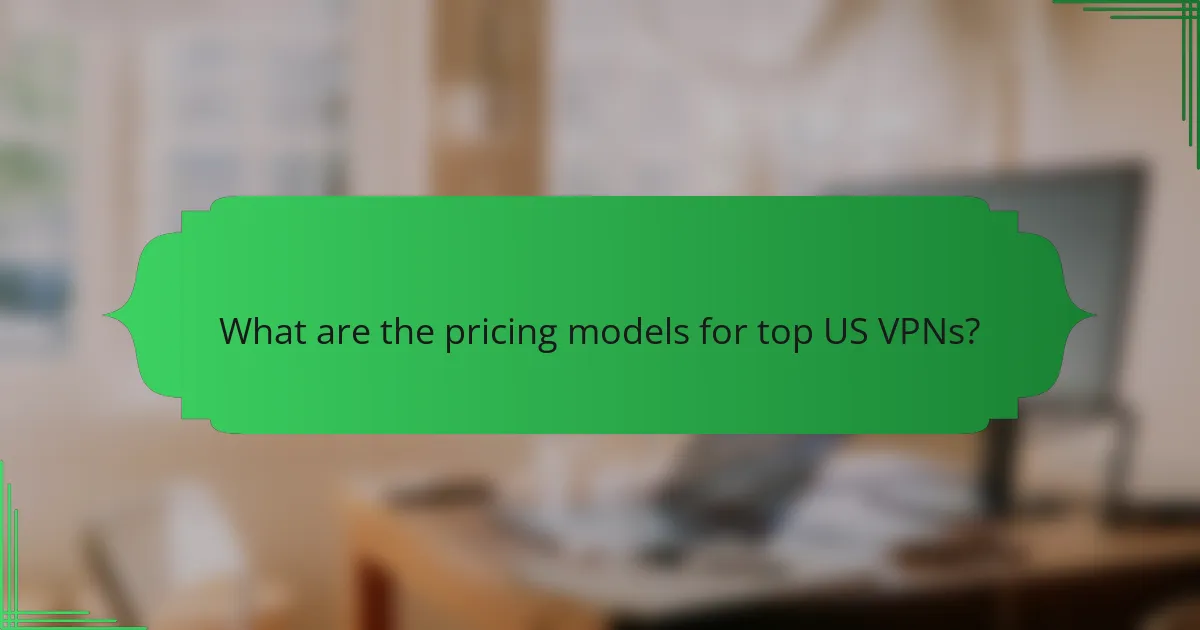
What are the pricing models for top US VPNs?
Top US VPN providers typically offer a variety of pricing models to accommodate different user needs. These models include monthly subscriptions, annual plans, and free trials, each with its own advantages and considerations.
Monthly subscriptions
Monthly subscriptions provide flexibility for users who may only need a VPN for a short period. Prices generally range from around $10 to $15 per month, depending on the provider and features included.
While convenient, monthly plans can be more expensive over time compared to longer commitments. Users should evaluate their usage needs to determine if a monthly plan is the best option.
Annual plans
Annual plans often offer significant savings compared to monthly subscriptions, with prices typically ranging from $60 to $120 per year. Many providers incentivize long-term commitments by reducing the monthly rate when billed annually.
Choosing an annual plan can be a cost-effective solution for users who anticipate needing a VPN for an extended period. However, it’s essential to review the terms of service and refund policies before committing.
Free trials
Free trials allow users to test a VPN service without financial commitment, usually lasting from a few days to a month. This option is beneficial for assessing performance and features before making a purchase.
While free trials can be a great way to evaluate a VPN, users should be cautious of automatic billing after the trial period ends. Always check the cancellation policy to avoid unexpected charges.
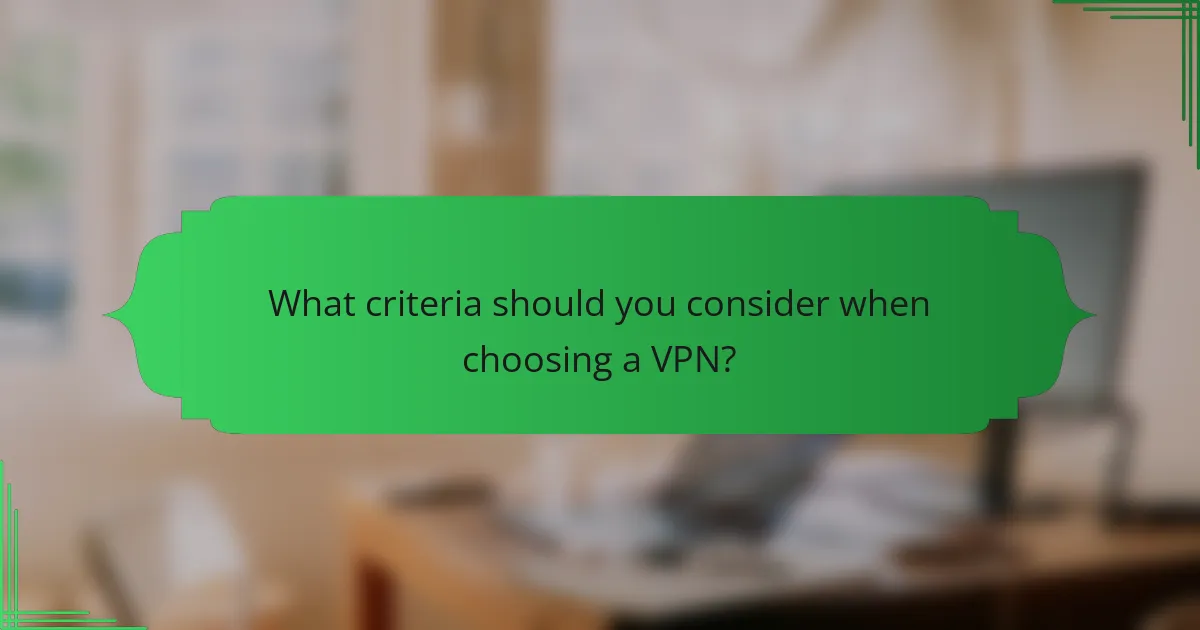
What criteria should you consider when choosing a VPN?
When selecting a VPN, consider factors such as speed, server locations, and customer support. These elements significantly impact your overall experience and the effectiveness of the VPN in protecting your data.
Speed and performance
Speed and performance are crucial when choosing a VPN, as they affect your browsing experience. Look for providers that offer high-speed connections with minimal latency, ideally in the range of low tens of milliseconds.
Test results from independent sources can help you gauge performance. Some VPNs may offer faster speeds during peak hours, while others may slow down significantly. Always check for a money-back guarantee to test the speed before committing.
Server locations
The number and diversity of server locations can influence your VPN experience. A provider with a wide range of servers across various countries allows for better access to geo-restricted content and can enhance connection speeds.
Consider VPNs that have servers in regions you frequently access. For example, if you often stream content from the US or Europe, choose a VPN with multiple servers in those areas to ensure optimal performance.
Customer support
Reliable customer support is essential when using a VPN, as issues can arise unexpectedly. Look for providers that offer 24/7 support through multiple channels, such as live chat, email, or phone.
Check user reviews to assess the quality of customer service. A responsive support team can help resolve technical problems quickly, ensuring you can maintain your data protection without significant downtime.
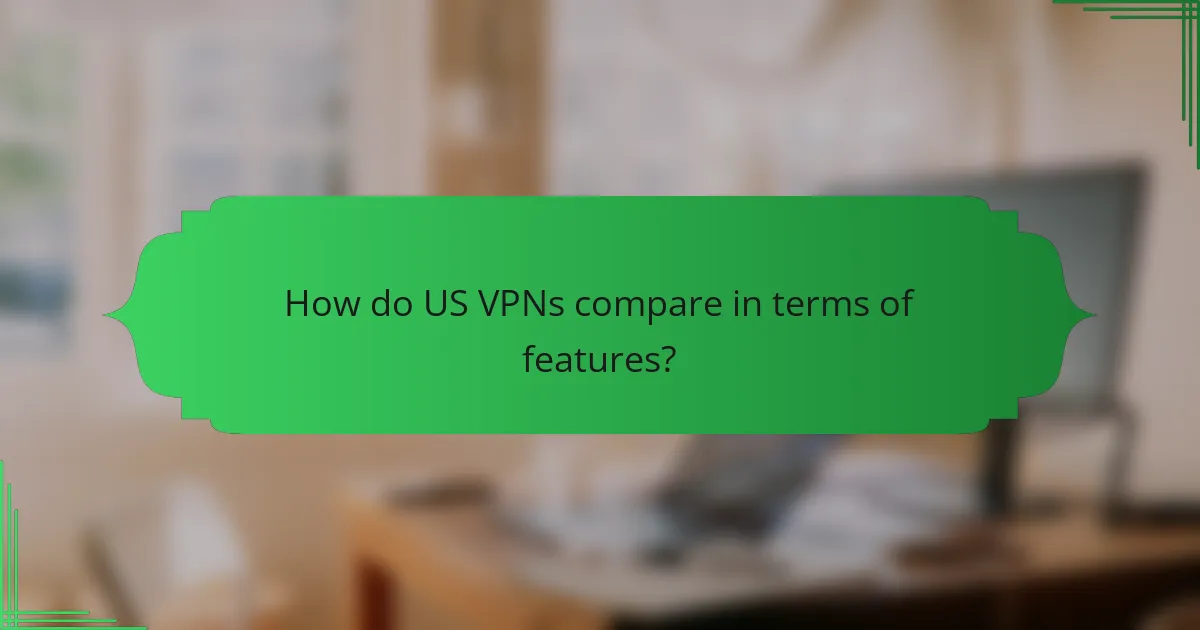
How do US VPNs compare in terms of features?
US VPNs vary significantly in features, impacting user experience and data protection. Key aspects to consider include device compatibility and the number of simultaneous connections allowed.
Device compatibility
Device compatibility is crucial when choosing a VPN, as it determines which devices can effectively use the service. Most US VPNs support major platforms like Windows, macOS, Android, and iOS, but some may also offer browser extensions or support for smart TVs and gaming consoles.
When evaluating a VPN’s compatibility, check for support on your preferred devices and operating systems. Some providers may offer dedicated apps, while others rely on manual configuration, which can be more complex for less tech-savvy users.
Simultaneous connections
The number of simultaneous connections allowed by a VPN provider can greatly influence its value. Many US VPNs offer anywhere from three to ten simultaneous connections, enabling multiple devices to be protected at once.
When selecting a VPN, consider how many devices you plan to connect simultaneously. If you have a large household or use multiple devices, look for providers that offer higher connection limits to avoid additional costs or the need for multiple subscriptions.
